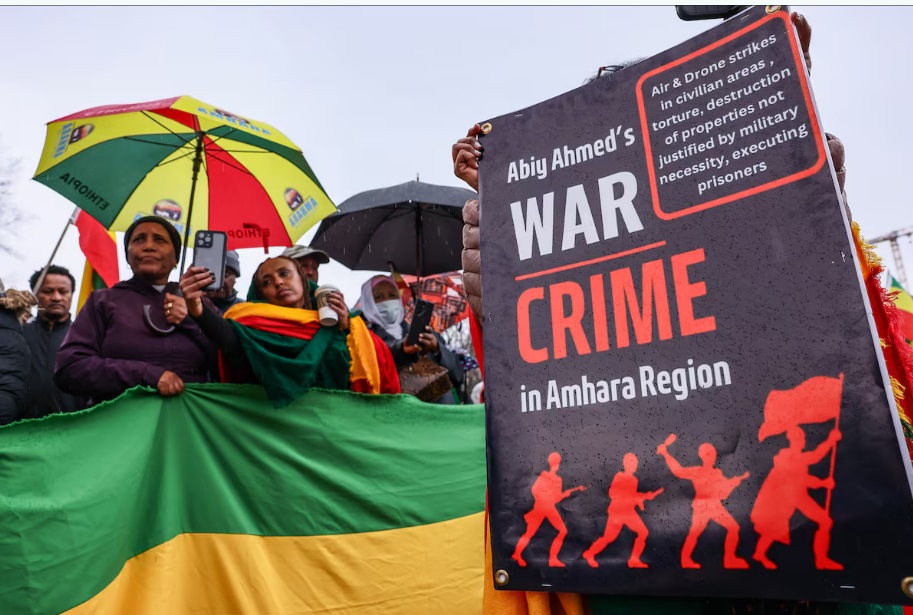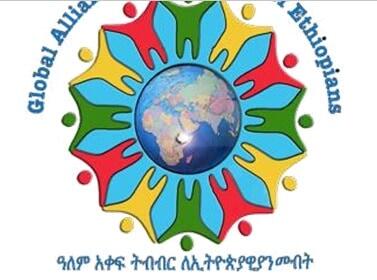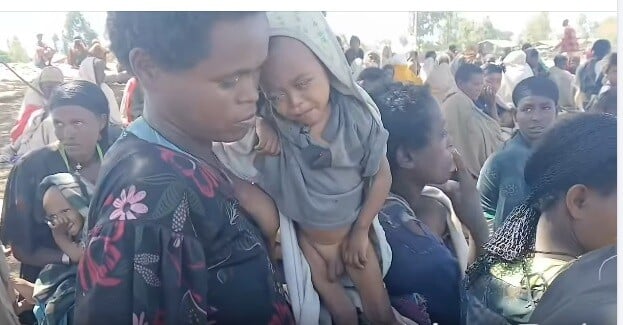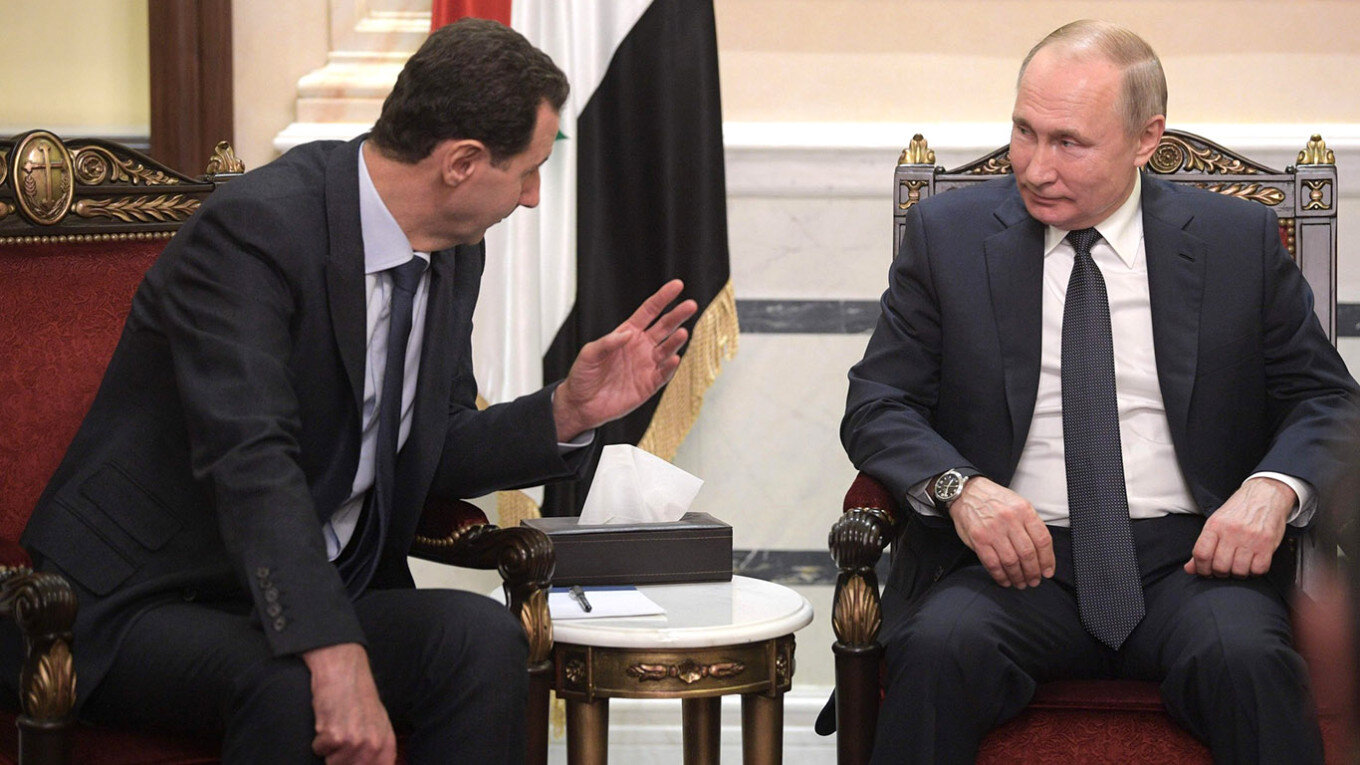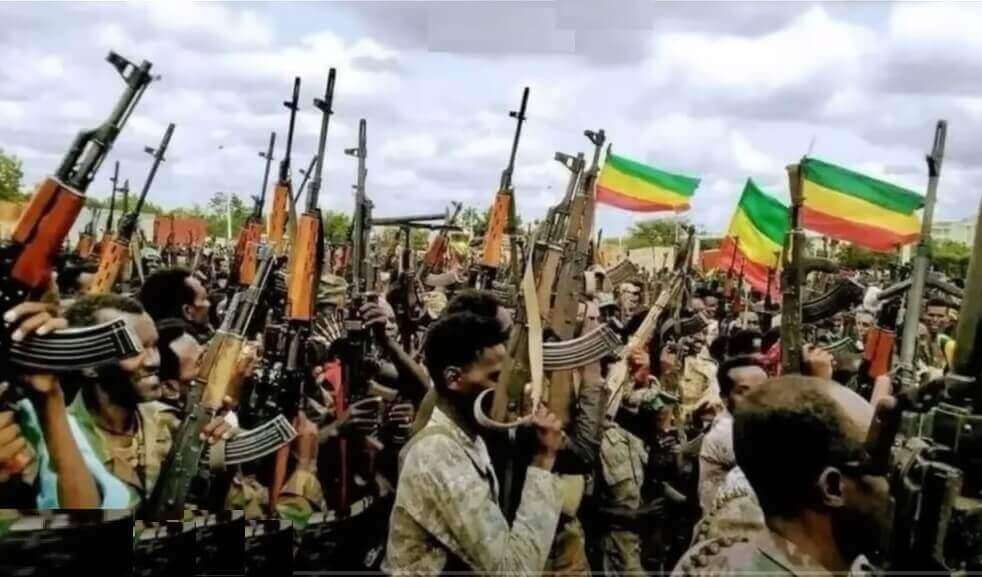 Fano is a term referring to a loosely organized group of Ethiopian armed militia and youth movements, primarily active in the Amhara region. Fano is deeply rooted in Ethiopian history, symbolizing resistance and patriotism. Historically, the term has been associated with freedom fighters who opposed colonial or foreign influence, including the Italian invasion of Ethiopia during the 1930s.
Fano is a term referring to a loosely organized group of Ethiopian armed militia and youth movements, primarily active in the Amhara region. Fano is deeply rooted in Ethiopian history, symbolizing resistance and patriotism. Historically, the term has been associated with freedom fighters who opposed colonial or foreign influence, including the Italian invasion of Ethiopia during the 1930s.
The Fano movement predominantly comprises individuals from the Amhara ethnic group; however, it is frequently regarded as a grassroots initiative aimed at safeguarding the interests of the region.
The term “Fano” originates from an Amharic word that embodies concepts such as bravery, valor, and national pride.
This movement reflects a collective response to regional challenges, emphasizing the importance of community solidarity and cultural identity among its members.
The contemporary Fano has developed into a paramilitary organization, frequently intervening in disputes to safeguard the interests of the Amhara community. Their involvement is characterized by a readiness to engage in conflict when necessary.
This group is recognized for functioning independently of established military or governmental frameworks, allowing them to act with a degree of autonomy that distinguishes them from conventional forces. Their operations often reflect a commitment to the protection of their people.
As a result, the Fano has become a significant player in regional dynamics, often filling a void in security and defense where formal institutions may be lacking. Their actions underscore a broader narrative of local empowerment and self-defense among the Amhara populace.
The Fano fighters were instrumental in the guerrilla warfare efforts during Ethiopia’s struggle against Italian occupation from 1935 to 1941. Their contributions were significant in the resistance movement, showcasing their bravery and commitment to the cause of national sovereignty.
As a result of their valiant efforts, the Fano fighters have been honored and recognized as national heroes in Ethiopia’s quest for independence. Their legacy is deeply embedded in the historical narrative of the country, symbolizing resilience and the fight against colonialism.
The impact of the Fano fighters extends beyond their military engagements; they represent a pivotal chapter in Ethiopia’s history, inspiring future generations to uphold the values of freedom and self-determination. Their role in the resistance is a testament to the enduring spirit of the Ethiopian people.
In recent years, Fano has played a significant role in several regional and national conflicts, especially amid Ethiopia’s internal political turmoil and the border disputes impacting the Amhara region. Their participation in these conflicts has been notable and has drawn considerable attention.
The engagement of Fano in these disputes has occasionally resulted in allegations of human rights violations, which complicates their position within the broader context of the conflicts. Such accusations have raised questions about the implications of their actions and the overall impact on the affected communities.
As Fano continues to navigate these challenging circumstances, their involvement underscores the intricate dynamics of regional politics in Ethiopia. The interplay between their activities and the ongoing crises highlights the need for a nuanced understanding of the situation and its ramifications for human rights and regional stability.
Fano is perceived as a stronghold for the Amhara identity and serves as a champion for the rights of the Amhara people. Proponents argue that the organization’s presence is vital in light of what they view as systemic marginalization and threats to their community. This viewpoint emphasizes the importance of Fano within the broader discussions regarding ethnic identity and rights in Ethiopia, illustrating their dedication to representing a group that feels insufficiently recognized.
The organization reflects the complex and layered nature of Ethiopia’s ethnic and political environment. As the socio-political landscape continues to change, it is expected that Fano’s role and influence will also evolve, mirroring the ongoing challenges and intricacies that characterize Ethiopia’s diverse society. This capacity for adaptation highlights the organization’s significance in addressing the aspirations and concerns of the Amhara people amidst these shifting circumstances.
The rise of Fano within Ethiopia’s socio-political context signifies the persistent struggle for ethnic representation and rights. As the organization maneuvers through the complexities of its surroundings, it remains an essential advocate for the Amhara community, ensuring their perspectives are acknowledged in a nation characterized by diversity and competing interests. The future direction of Fano is likely to be influenced by the changing political environment and the ongoing pursuit of equity among Ethiopia’s various ethnic groups.




